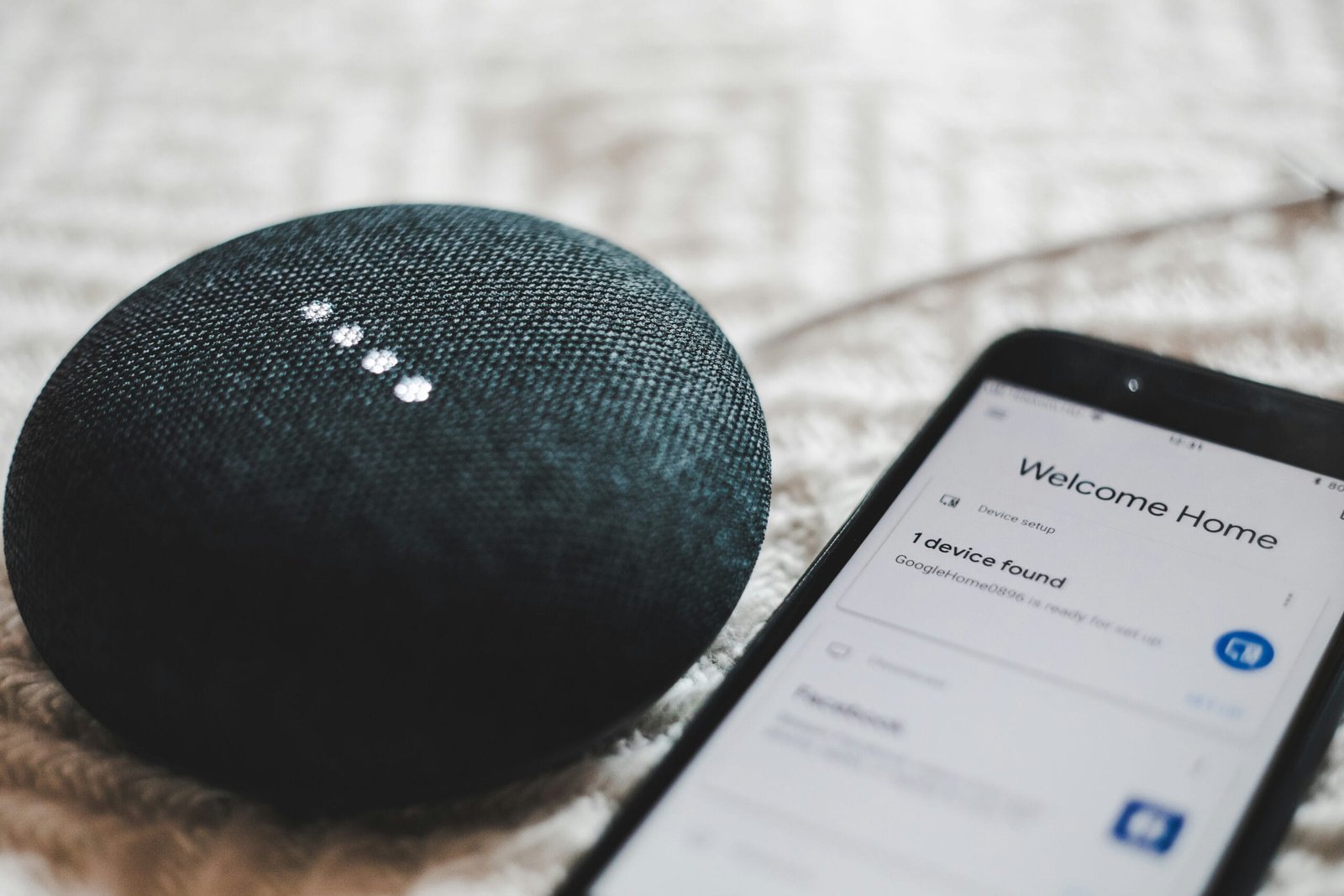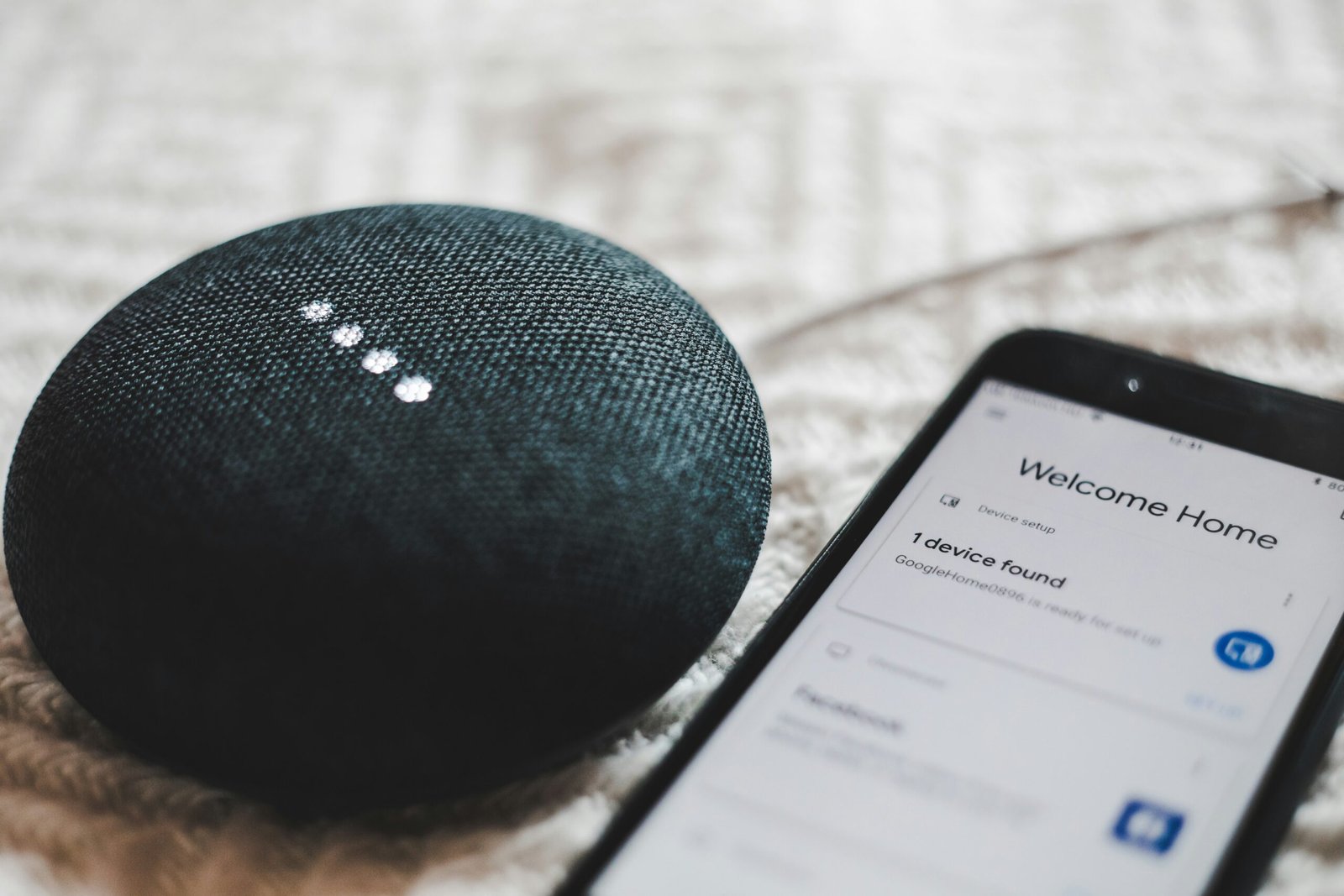Introduction to Smart Speakers in 2025
In recent years, smart speakers have evolved significantly, emerging as vital components of modern households. By 2025, the integration of voice-activated technology into daily life has transformed how individuals interact with their environments. Smart speakers like the Amazon Echo Dot and Google Nest Mini have become more than just gadgets; they serve as central hubs for information, entertainment, and home automation. The ability to activate these devices through voice commands has bolstered their popularity, marking a substantial shift in user engagement.
The ubiquity of smart speakers is a testament to their functional versatility. They can manage schedules, control smart home devices, play music, and provide instant information—all through simple vocal instructions. Beyond convenience, these speakers contribute to a more seamless lifestyle, allowing users to multitask efficiently. As the technology continues to advance, features such as improved voice recognition and enhanced functionality have made speaking to these devices an intuitive experience.
Smart speakers in 2025 are equipped with more sophisticated Artificial Intelligence (AI) capabilities, learning user preferences over time and adapting to individual needs. This evolving technology not only improves daily interactions but also enhances personalization, making devices like the Amazon Echo Dot and Google Nest Mini essential household companions. Both of these devices have established themselves as leaders in this space, each with its unique set of features that cater to varying user needs.
As we delve into a detailed comparison of the Amazon Echo Dot and Google Nest Mini, it is imperative to understand the context of their growing significance. The increasing reliance on smart speakers highlights the importance of making an informed choice, taking into account factors such as functionality, compatibility, and user experience. This exploration aims to provide readers with valuable insights into these innovative devices and aid them in selecting the ideal smart speaker for their homes.
Detailed Review of the Amazon Echo Dot (Latest Model)
The Amazon Echo Dot, in its latest iteration for 2025, has garnered significant attention for its impressive combination of design, audio quality, and smart capabilities. Aesthetically, the device presents a modern and compact form, available in multiple finishes that easily blend into any home decor. This versatility makes it ideal for various settings, from the living room to the kitchen. Moreover, the device is designed to provide a seamless user experience, featuring a simple interface that is easy to navigate for individuals of all ages.
One of the standout aspects of this latest Amazon Echo Dot is its enhanced audio quality. The speaker delivers crisp and clear sound, which is a substantial improvement over previous models. The audio output is vibrant with more dynamic bass, making it suitable for various activities, including listening to music, podcasts, or even audiobooks. Users have noted the enhanced volume capabilities, which allow for better sound projection across larger spaces.
The AI capabilities of the Echo Dot have also been significantly advanced, particularly with its voice recognition technology. The integration of Alexa, Amazon’s virtual assistant, is smoother than ever, with improved natural language processing that allows for more fluid and intuitive conversations. This model is equipped to understand complex commands and context, making it an invaluable resource for managing daily tasks, controlling smart home devices, and answering questions.
Compatibility with other smart home devices is another hallmark feature of the Amazon Echo Dot. Users can easily control various products such as lights, thermostats, and cameras through simple voice commands. The device supports numerous protocols, ensuring that it can connect with a wide range of brands and devices. Feedback from users has illustrated a high satisfaction level with the integration process, leading to an enhanced smart home experience.
In conclusion, the 2025 Amazon Echo Dot emerges as a formidable option for those looking to upgrade their smart speaker technology, offering remarkable design, excellent audio output, and a seamlessly integrated AI experience.
In-Depth Analysis of Google Nest Mini
The Google Nest Mini, a compact smart speaker, offers an impressive array of features that make it a formidable contender in the market. Launched as a successor to the original Google Home Mini, this device has seen several enhancements, particularly in sound quality and design. Encased in a sleek fabric exterior, the Nest Mini maintains a minimalist aesthetic suitable for various home environments. Its design is not just appealing but functional, incorporating wall-mount capabilities for versatility.
One of the standout features of the Google Nest Mini is its audio performance. With improved bass and clearer sound reproduction, it offers a richer music listening experience. The speaker employs a 40mm driver and utilizes machine learning algorithms for optimal audio tuning, which evolved from user feedback on previous models. This ensures that irrespective of the genre, users will likely appreciate the sound clarity and depth delivered by the Nest Mini.
At the core of the Google Nest Mini is the Google Assistant, renowned for its advanced intelligence and versatility. The assistant can perform tasks ranging from controlling smart home devices to providing real-time information on weather and traffic. Voice recognition has also been refined; the device can discern commands even in a noisy environment, enhancing user interaction significantly. Users report a seamless experience thanks to the assistant’s ability to understand natural language and context, which contributes to its high usability rating.
User reviews often highlight the smart speaker’s integration capabilities with numerous third-party applications and services. This allows consumers to customize their experience according to their preferences. While the Google Nest Mini excels in many areas, some users have pointed out limitations in its volume levels compared to larger competitors. Nevertheless, the overall consensus is favorable, making the Google Nest Mini an excellent choice for those seeking a robust smart speaker solution.
Comparative Analysis: Which Smart Speaker Should You Choose?
When considering the purchase of a smart speaker, the Amazon Echo Dot and Google Nest Mini emerge as two leading contenders in the market. A detailed comparison highlights key aspects such as price, ease of use, sound quality, and overall value that can guide potential buyers in making an informed decision.
Starting with price, the Amazon Echo Dot typically retails at a slightly lower cost than the Google Nest Mini. This pricing strategy often appeals to budget-conscious consumers looking for a competent smart speaker. However, it is essential to consider the availability of discounts and bundles, especially during promotional events. Both devices frequently participate in sales, which could influence the final cost and potential overall value.
Ease of use is another significant factor. Both the Amazon Echo Dot and Google Nest Mini boast user-friendly interfaces, but they cater to different ecosystems. The Echo Dot integrates seamlessly with the Amazon Alexa voice assistant, providing an intuitive experience for users already entrenched within the Amazon ecosystem. Conversely, the Google Nest Mini offers a smooth integration with Google Assistant, making it favorable for individuals who utilize Google services more frequently.
Sound quality also plays a crucial role in the decision-making process. The Echo Dot traditionally provides clearer sounds and stronger bass, making it a more suitable option for music playback. Meanwhile, the Google Nest Mini excels in voice recognition and handling multiple queries simultaneously, which can enhance user experiences in conversations or smart home control.
Ultimately, choosing between the Amazon Echo Dot and Google Nest Mini may depend on individual preferences regarding smart home integration and the ecosystems they are most comfortable with. Assessing these factors is essential to ensure the choice aligns with personal needs and enhances the overall value of the smart speaker experience.


